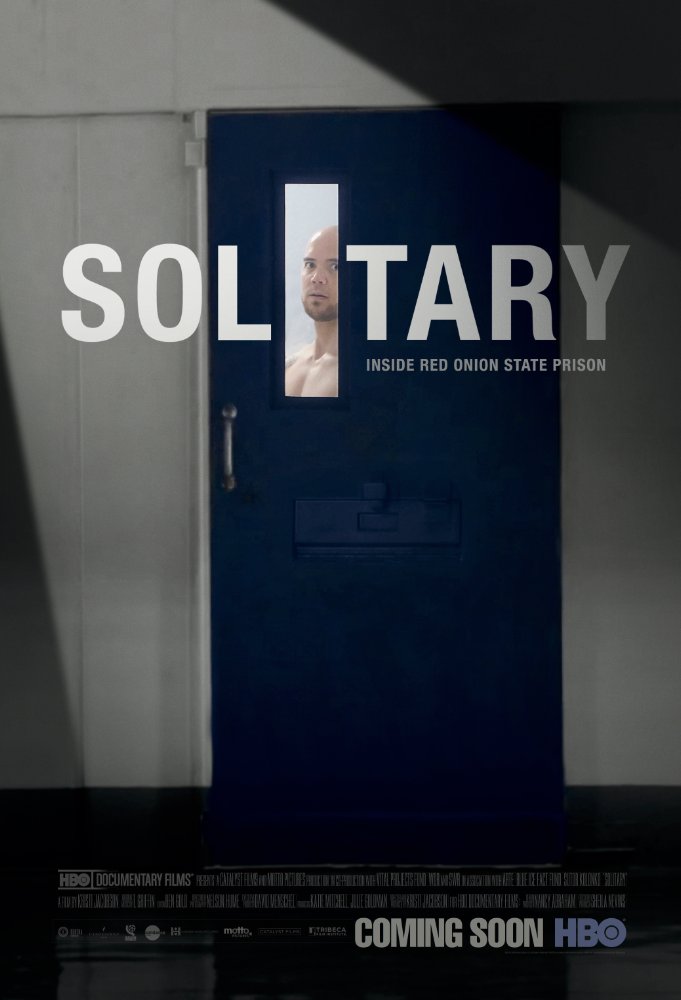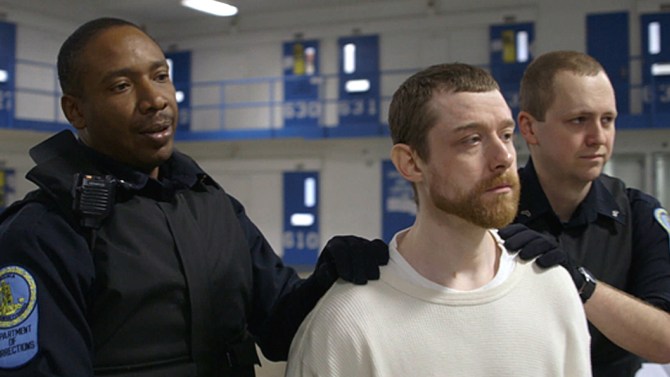Doc Corner: The Confined Spaces of 'Solitary'
 Tuesday, March 21, 2017 at 10:38AM
Tuesday, March 21, 2017 at 10:38AM  Solitary could have gone in many different directions. Filmed over a year inside the supermax solitary confinement prison of Red Onion, Virginia, all sorts of independent narratives that are weaved throughout could have made for their own captivating feature. There are the guards, disturbed by what they see, and the death of the region’s prime coal mining industry that brought them to this line of work. There are the crimes of the prisoners, most of them violent, some of them not so. And then there is, like Ava DuVernay’s (broader, superior) Oscar-nominated 13th, the system itself that is obviously damaged and flawed at its very core.
Solitary could have gone in many different directions. Filmed over a year inside the supermax solitary confinement prison of Red Onion, Virginia, all sorts of independent narratives that are weaved throughout could have made for their own captivating feature. There are the guards, disturbed by what they see, and the death of the region’s prime coal mining industry that brought them to this line of work. There are the crimes of the prisoners, most of them violent, some of them not so. And then there is, like Ava DuVernay’s (broader, superior) Oscar-nominated 13th, the system itself that is obviously damaged and flawed at its very core.
It's nice, but also a little frustrating, then that director Kristi Jacobson (known best for 2012’s A Place at the Table) chose something far less sensational by focusing on the concept of nature versus nurture. Nice because that feels rare in film, but frustrating because it doesn't make the most of its unique access while doing so...
The film's strength is in how by talking to a selection of Red Onion prisoners she uncovers the self-fulfilling prophecy among many men who are taught what it means to be a man at an early age only to have that lead them directly to a life sentence where those lessons are only amplified and can lead then to life in solitary confinement at a place like Red Onion.
In its best segments, it examines how one of the principal subjects was abused and neglected as a child, which fostered anger and violent resentment and how that lead directly to his ending up in prison where he was again abused and neglected in the prison system, fostering anger violent resentment. How the lessons of survival make it virtually impossible to become truly rehabilitated and prove they are paying their debts to society.

At only 80 minutes, Jacobson easily could have elaborated on this train of thought even more. These men, long since abandoned by family and friends, prove to be remarkably interesting subjects, no doubt bolstered by the novelty of having a new person to express their thoughts to. Whether it’s coincidence or strategic editing, the men come off as remarkably sympathetic despite their crimes, which they all freely admit to while also questioning what lead to them being in this particular place. One of the prisoners labels Red Onion a death sentence; a place where suicidal thoughts are ever-present and they are as close to the death penalty as you can possibly get. A place that confines them to 8x10 cells for 23 hours a day (and an exterior cage for the 24th).
Most of Solitary’s impact comes from the ability of Jacobson’s camera to go where none have before – a “black zone” off limits to outsiders. In that regard, this film is quite something. But there is the distinct sense that a lot has been left on the table in regards to stories to be told and potential lessons to be learned. Technical aspects are standard, although her camera does catch, if only by accident, some captivating compositions, framing its subjects behind windows of miniature size as they as they recreate the same shackle routines day-in-day-out.
Like I said at the top, there are so many more avenues of investigation to go down, but Jacobson’s film stops short of doing so. They are teased and offer their own tantalising dramatic prospects as well as potentially further enriching the central story at the core of Jacobson’s film. It’s particularly disappointing considering so much of the footage she has amassed is fascinating in a lot of ways. It’s just that in the end Solitary feels like an incomplete portrait.
How to Watch: Currently playing on HBOGo and HBONow.
Oscar Chances: Unlikely, although A Place at the Table nabbed some high-profile nominations including from the PGA so it could get some consolation citations.
 Doc Corner,
Doc Corner,  HBO,
HBO,  Reviews,
Reviews,  documentaries
documentaries 


Reader Comments